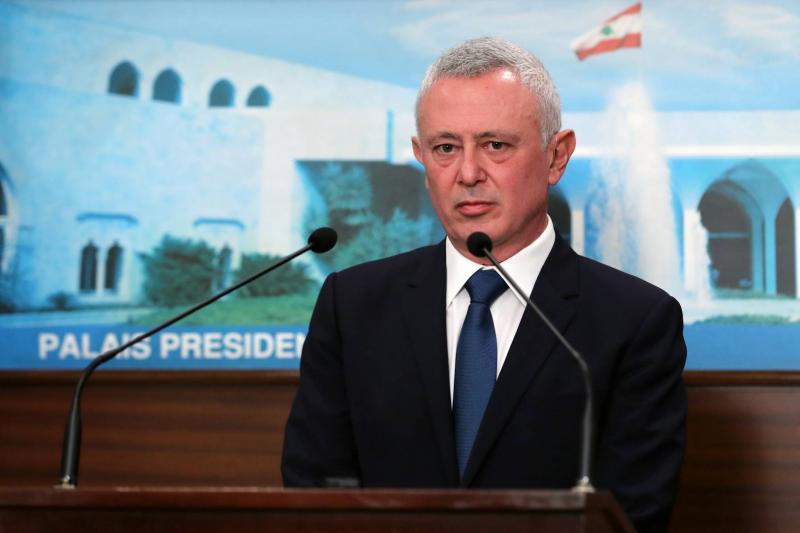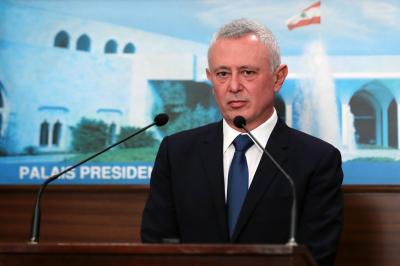Most positions and statements in the past few hours have centered around the presidential file and the candidacy of former Minister Sleiman Frangieh. The Secretary-General of "Hezbollah," Sayyed Hassan Nasrallah, joined President Nabih Berri and openly declared that Frangieh is his party's candidate for the Lebanese presidential elections. As soon as Nasrallah finished his speech, a coded tweet from the Saudi ambassador to Lebanon appeared, stating: "The phenomenon of the convergence of the resident inhabitants in the structural entitlements warrants reflection for its repetition in terms of saying and expression. In summary: if two residents meet, the first must be removed; either by omission if it is afflicted, or by moving one of them if the resident is correct! The question here is: who is the first resident supposed to be removed if they are afflicted or moved?" These statements followed Frangieh's renewed affirmation of his strong ties with "Hezbollah" and President Berri, as he sought to express his proximity to various political forces.
Frangieh considers himself the strongest and most deserving candidate for the presidency. He opposes the views of many Christian leaders, denying all claims of targeting Christians, insisting that no one targets them as much as they target themselves, from before the Taif Agreement to the present. Frangieh is largely convinced by external developments that he will reach the presidency, stating that he has not received any veto from any party so far. The French do not oppose his accession, the Americans do not impose a veto on his election, and he has not received any Saudi opposition. However, he has also not received any Saudi approval.
In a different context, Army Commander Joseph Aoun violently responded to those he termed as detractors of the army, stating: "Some embittered individuals and responsible parties concerned and unconcerned continue to fabricate rumors, distort the image of the institution, and accuse us of corruption and violating the law. If violating the law allows me to accept assistance from loving Lebanese inside and outside the institution, to provide medicine, food, transport for the military, healthcare, and school aid for their families, then I will violate the law." He continued, "We will not care about your accusations nor will you disrupt our execution of our mission; focus on your own affairs and let us focus on ours. The army will remain greater than your files and rumors."
Preceding all these statements, former Lebanese Ambassador to the United Nations Naufal Salam asserted that "the Taif Agreement is the foundation upon which civil peace in Lebanon is built," reminding everyone of the importance of "implementing its provisions that have not yet been enforced, correcting what has been distorted in its application, and plugging the gaps that have appeared in practice." Salam called for "restoring the authority to interpret the constitution to the Constitutional Council, as stipulated in the agreement, because it will enhance the legitimacy of this work, based on the presumption of the neutrality of this council and its judicial nature, whereas keeping the authority to interpret the constitution with the Parliament poses the risk of exposing any interpretation that this council might provide to criticism on the grounds that it serves the political interests of the parliamentary majority."
Salam emphasized that "the required financial and economic reforms will not bear fruit unless they are accompanied by long-awaited political reforms, strengthening the role of constitutional institutions, and returning the Taif Agreement to its proper path to put Lebanon on the way to building a modern state capable of asserting its independence from sects and forming a special space for itself." He added, "It does not mean here a state established in opposition to sects on one hand, nor a state that relies on the tolerance of sects toward it on the other; rather, it means a state capable of accommodating the sects within it and surpassing them at the same time." Salam currently serves as a judge in the International Criminal Court, and his remarks are especially significant now as his name is among those circulated in the media for the upcoming prime ministership. Regarding the prospects for Salam's name to emerge for the government, member of the "National Moderation" bloc, MP Saji Attieh, stated that he does not oppose Salam's accession to the premiership as part of a deal that includes a new president for the republic.




